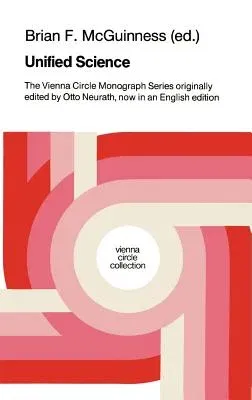Unified Science: The Vienna Circle Monograph Series Originally Edited by Otto Neurath, Now in an English Edition (1987)Hardcover - 1987, 31 October 1987

Qty
1
Turbo
Ships in 2 - 3 days
In Stock
Free Delivery
Cash on Delivery
15 Days
Free Returns
Secure Checkout

Part of Series
Vienna Circle Collection
Print Length
306 pages
Language
English
Publisher
Springer
Date Published
31 Oct 1987
ISBN-10
9027724849
ISBN-13
9789027724847
Description
Product Details
Book Edition:
1987
Book Format:
Hardcover
Country of Origin:
US
Date Published:
31 October 1987
Dimensions:
23.39 x
15.6 x
1.91 cm
ISBN-10:
9027724849
ISBN-13:
9789027724847
Language:
English
Location:
Dordrecht
Pages:
306
Publisher:
Series:
Weight:
639.56 gm